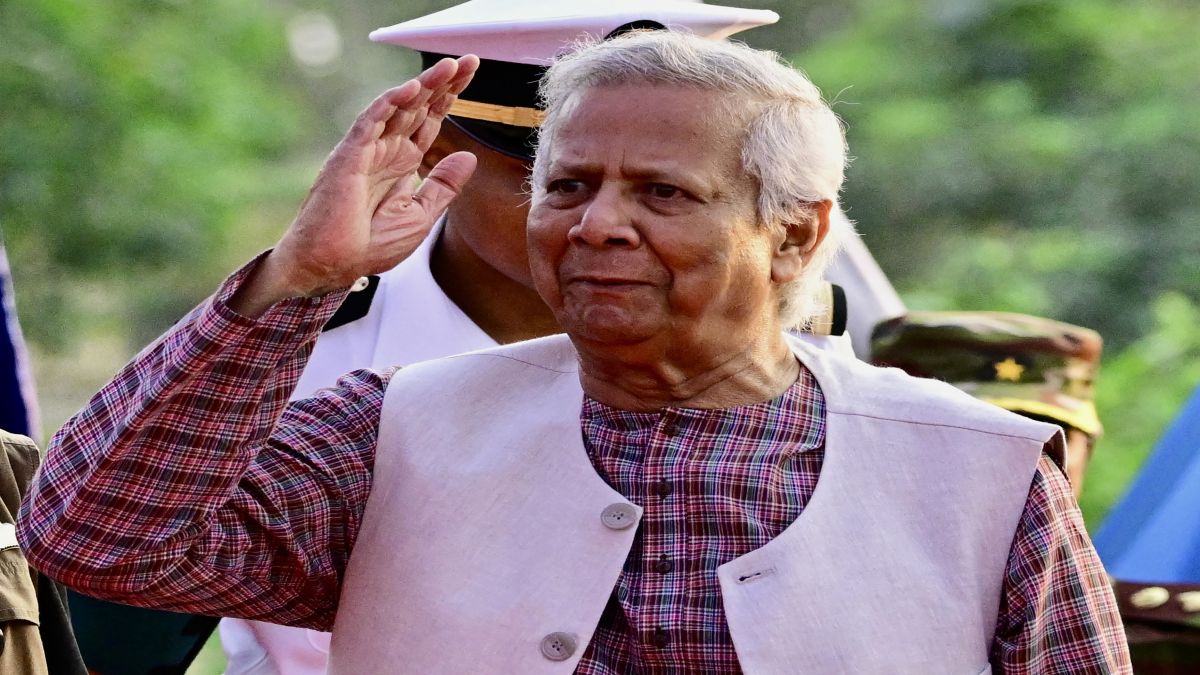Muhammad Yunus will remain the head of Bangladesh’s interim government, a cabinet adviser confirmed on Saturday (May 24), just two days after one of his close allies said he had considered resigning, sparking widespread speculation.
“He [Yunus] didn’t say he will leave. He said that while we face many obstacles in carrying out the work and responsibilities assigned to us, we are overcoming them,” Planning Adviser Wahiduddin Mahmud told reporters following an unscheduled meeting of the advisory council, according to a PTI report.
Mahmud added, “He is definitely staying.” He further said that none of the advisers were planning to step down, as “the responsibility entrusted to us is a significant one; we cannot abandon this duty."
Resignation remarks spark political row
Yunus’s decision to remain in office came two days after he told student-led National Citizen Party (NCP) leaders that he was considering resignation, citing that “the situation is such that he cannot work,” and pointing to difficulties stemming from the failure of political parties to reach consensus on change.
Following the speculation, the chief adviser’s press wing released a statement from the advisory council, noting that the two-hour meeting included in-depth discussions on the three primary responsibilities assigned to the interim government: elections, reforms, and justice.
“The Council discussed how unreasonable demands, deliberately provocative and jurisdictionally overreaching statements, and disruptive programmes have been continuously obstructing the normal functioning environment and creating confusion and suspicion among the public,” it stated.
BNP urges polls by December
Former Prime Minister Khaleda Zia’s Bangladesh Nationalist Party (BNP) on Saturday urged interim chief Muhammad Yunus to hold national elections by December 2025 and to reconstitute his cabinet by removing “controversial advisers.”
“We have called for completing the reforms quickly and holding the national election by December,” said BNP standing committee member Khandaker Mosharraf Hossain after meeting Yunus at his official Jamuna residence in the evening.
Impact Shorts
More ShortsHossain, who led the BNP delegation, said they also asked Yunus to announce a clear roadmap for the elections and demanded a reshuffle of the advisory council—effectively the interim cabinet—excluding figures they consider controversial.
Several senior BNP leaders, including Abdul Moyeen Khan and Salahuddin Ahmed, previously stated that the party hoped Yunus would oversee early general elections and step down respectfully, rather than resign abruptly.
Political reset after Awami League’s exit
The BNP has re-emerged as a key political force following the removal of the Awami League from power in August last year. Jamaat-e-Islami, which had aligned with the NCP after the BNP distanced itself from its former ally, also stressed that only free and fair elections could restore public trust.
“The government has said elections will be held between December and June. A clear roadmap is now needed—not just for elections, but also for political and governance reforms,” said Jamaat leader Syed Abdullah M Taher.
However, Syeda Rizwana Hasan, a senior adviser in Yunus’s cabinet, emphasised that the interim government’s mandate went beyond elections to include broader reforms and justice delivery.
Tensions with military over elections and foreign policy
Yunus’s potential resignation came amid reports of friction between the interim government and the military regarding the election timeline and a proposed aid corridor to Myanmar’s rebel-held Rakhine state.
Army Chief General Waker-Uz-Zaman, along with the navy and air force chiefs, met Yunus three days ago. They reportedly reiterated their call for elections by December and voiced concerns over the humanitarian corridor plan.
The following day, General Zaman told senior officers at Dhaka Cantonment that he was not informed of several key strategic decisions, despite the military’s active role in governance.
Military strengthens internal control
The military has also moved to tighten internal security amid rising incidents of mob violence. Troops granted magistrate powers have been seen increasing patrols and enhancing vigilance in urban areas.
Analysts have described the recent high-level military meeting as pivotal in reinforcing the armed forces’ influence. During last year’s protests, the army avoided using force and helped facilitate Sheikh Hasina’s safe departure to India. It also supported Yunus’s appointment as interim chief, as demanded by the SAD, many of whose members later went on to form the NCP.
With inputs from PTI
)